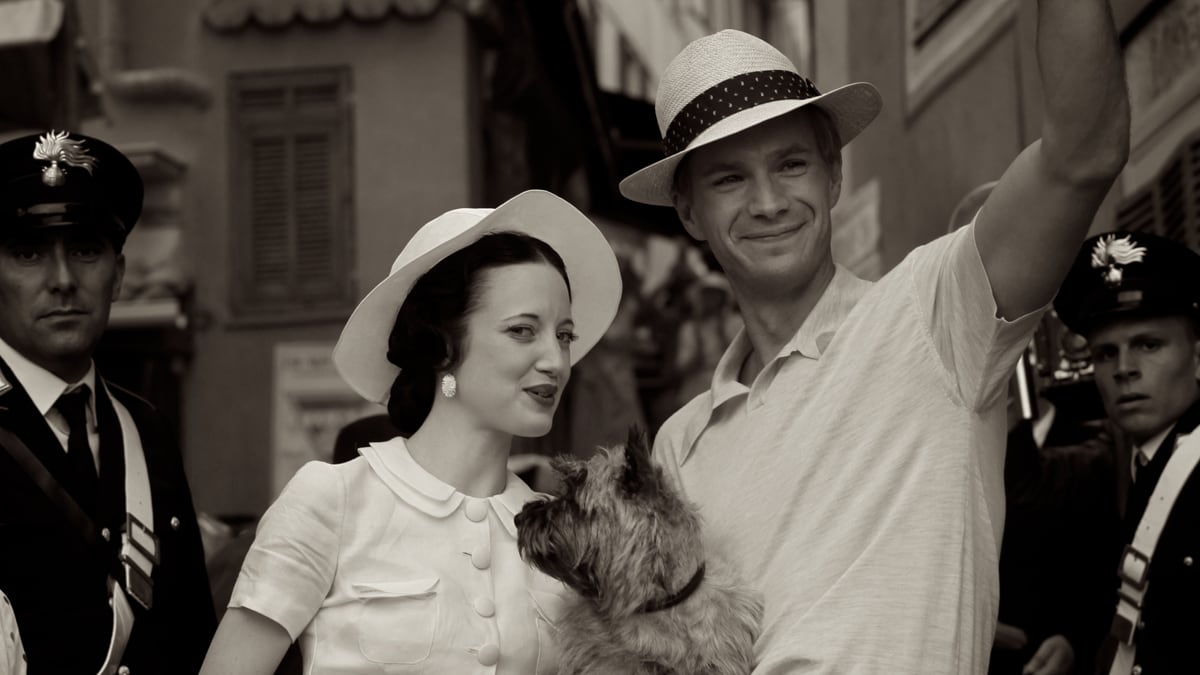A pattern has emerged with Harvey Weinstein’s British-historical movies that is now impossible to ignore. His latest film, W.E., underlines all the trends previously noted in The English Patient (1996), The King’s Speech (2010), and The Iron Lady (2011). While the acting is superb—Meryl Steep deserves an Oscar for her portrayal of Margaret Thatcher in The Iron Lady, for example—and the sets are glorious, the accents impeccable, the costumes magnificent, the screenplays crisp, the lighting and production a delight, and the storylines powerful, nonetheless the actual history is always utterly, laughably risible. For the lack of the price of a historian checking a script, Weinstein manages to present versions the past that every single time are packed with absurd schoolboy howlers.
Thus in W.E., the story of the 1936 abdication crisis told in parallel with a modern New York love tale, we see fine performances from Andrea Riseborough as Wallis Simpson and Abbie Cornish as Wally Winthrop and some beguiling scenes thought up by the director, Madonna, but whenever it touches on the actual historical circumstances, the film marches straight into a series of easily avoidable pitfalls. The Duke and Duchess of Windsor’s (unforgivable) visit to Adolf Hitler in 1937, for example, is explained away by having the actor playing King George VI in 1939 say, “After all, Winston Churchill has dined with Stalin,” which he had not done by then and was not to do until 1942, by which time the U.S.S.R. was Britain’s ally against Hitler.
Far from being “based on rumor,” as Winthrop (Cornish) states in the movie, Edward VIII’s pro-Nazi sympathies are a matter of public record, as when the Prince of Wales had to be rebuked by his father for the warmth of his public declaration for Nazi Germany in a speech to ex-servicemen in June 1935. His cousin Prince Louis Ferdinand of Prussia stated in July 1933 that Edward “was quite pro-Hitler, said it was no business of ours to interfere in Germany’s internal affairs either re Jews or anything else, and added that the dictators were very popular these days and we might want one in England before long.” When the exiled emperor of Abyssinia, Haile Selassie, arrived in London, Edward VIII treated him like a bacillus for fear of irritating Benito Mussolini, who had overrun Abyssinia (modern-day Ethiopia), and Selassie was allowed only a five-minute audience with the Duke of Gloucester as a result.
The film footage of King George V’s funeral is voiced over in this movie as “the funeral of King George III,” which happened 116 years earlier. One might have thought that Hollywood could distinguish between the last king of America and Her Majesty the Queen’s grandfather. Edward VIII, who was called David by his family, as explained by Mrs. Simpson in the film, is nonetheless called Edward by his own brother, just as the Prince of Wales is called “your majesty” before his father died, when he would still have been called “your royal highness.” These aren’t difficult things to get right. Likewise, there must be people in Hollywood who know that upper-class dinner parties in the ’30s were seated strictly on a boy-girl-boy-girl basis, rather than women sitting next to each other.

The king is presented as putting the drug Benzedrine into the champagne at a cocktail party, which was actually done by a friend, the Tory M.P. Chips Channon. Stanley Baldwin is depicted as having invited the king and Simpson to dinner at his house to meet her, whereas they only met once, in May 1936 at a dinner hosted by the king, and he did not recognize her significance until months afterward. The king is portrayed as wanting children, which is untrue; otherwise he would not have married the 40-year-old Simpson. He is also depicted as drinking fairly heavily throughout the crisis, whereas one of the (few) things for which Baldwin gave him credit was that he faced the entire ordeal sober. People are constantly shown wearing white tie to black-tie occasions and vice versa. The Duchess of York (later the Queen Mother) tells the dying King George V, “I’m sure David [i.e., the future Edward VIII] is destined for greatness,” which was precisely the opposite of what she was actually writing and saying at the time. Queen Mary is given a heavy guttural German accent; it actually was barely perceptible (as recordings of her voice prove). Simpson is seen curtsying like a milkmaid, whereas she knew perfectly well how to do it (her second husband, Ernest, had served in the Coldstream Guards). And so on and so egregiously on, until they detract from the storyline itself. All these errors were simple to avoid, but by making them, Madonna and Weinstein cast doubt on the expertise behind the underlying story.
Perhaps the worst error is to take seriously Edward VIII’s 1936 statement about the Welsh coal miners, that “something must be done” for their plight, which he made only when he knew he would have to abdicate, so someone else would have to take responsibility for following through on the hope that he had so irresponsibly raised. The questionable taste of this film making Mohamed Al-Fayed out to be a generous, gentlemanly philosopher, rather than the man who has disgracefully accused Prince Philip of being personally involved in the death of Diana, Princess of Wales, falls outside my remit, which is simply to point out that there’s little point in making history films and then getting absolutely everything about them bang-on right—except, of course, the history.
Editor's Note: Harvey Weinstein's company, The Weinstein Company, acquired and distributed the films W.E. and The Iron Lady. Harvey Weinstein was not involved in the films' production. We have adjusted some language in the piece to avoid confusion.






